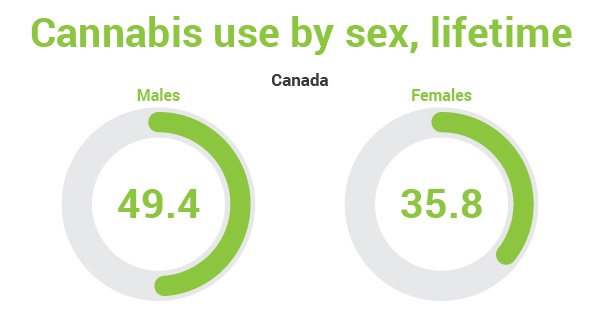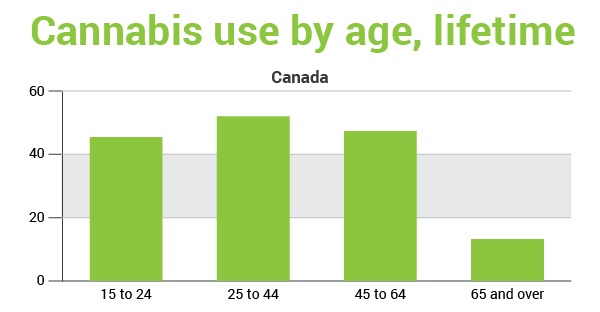Cannabis legalization is coming to Canada. And for some parts of the United States, it’s already here.
As of October 17th 2018, the legal, political and social responsibilities of Canadian organizations employing contingent workers will drastically change when recreational cannabis is legalized. The latest data from Statistics Canada reveals that 43 per cent of Canadians have used cannabis in their lifetime—with 12 per cent of them using within the past year. And when contingent workers make up 30 per cent of the Canadian workforce, few organizations across the country will remain unaffected.
With employers on both sides of the border already grappling with the complications of managing intoxication in the workplace, legalization adds yet another hurdle. Is your organization prepared?
Here are four questions you should be asking right now:
1. Does my organization’s drug and alcohol policy cover employees AND contingent workers?
If you haven’t already updated your company’s drug policy, it’s time to get started! You’ll want to cover:
• A clear statement on permitted or prohibited use.
• Who is covered by the policy?
• Workplace safety considerations.
• How you will handle accommodations.
• Consequences for being in breach of policy.
It’s important to ensure that your policy is up to date and outlines expectations around cannabis use, including mandates from a medicinal and recreational stand point. The policy needs to be communicated to employees and contingent workers with an understanding of what is expected of them. When done effectively, this can help organizations hold their workforce in breach of policy.
2. What happens if line managers suspect someone of being under the influence of cannabis at work?
Employers expect the first few months to be challenging, and it’s critical that your management team is trained and ready for how to handle any events should they arise.


Reasonable suspicion training is an excellent tool for employers, supervisors and employees to be trained on, as being able to recognize the signs of impairment can help keep the workplace safe. The training is intended to identify when a person shows signs of impairment and may be unfit to perform his or her duties.


It’s also important for employers and managers to know how to have effective conversations around signs of impairment and be aware that they are not meant to be identifying the substances that could be impairing someone– but the signs of an unfit worker. Ignoring these signs will allow any concerns to worsen and create unnecessary risk.
3. How will my organization handle legally required accommodations?
Like it or not, legal cannabis is coming — and that means the way organizations have traditionally handled intoxication in the workplace has to change. However, it may be particularly challenging for organizations operating on both sides of the border, as the policies for U.S. based workers won’t fit with the new legalization approach in Canada.
Canadian employers have certain legislation they need to follow regarding their employees or contingent workers, including the Human Rights Legislation of the province in which they live. This includes the duty to accommodate workers with mental or physical disability and the treatment that follows. A recent survey conducted by Human Resources Professionals Association (HRPA) reveals that only 11 per cent of responding organizations have a policy in place that addresses medical cannabis—and 46 per cent of those employers don’t believe their existing policy adequately covers issues that may arise from legalization for recreational use.
Get it wrong, and you’ll be facing a labour board complaint or civil litigation.
Most provincial legislation requires employers to provide various types of reasonable accommodation to their employees and contingent workers. Yet, only 11% of HRPA responding organizations admit to having to accommodate an employee that requires medical cannabis, leaving many commentators to expect this number to grow and extend to certain types of use as well (check out this briefing on accommodation from the Ontario focused Human Rights Legal Support Center). Accommodation is situational and must be looked at on an individual basis, yet it doesn’t have to be perfect or preferred– only reasonable. Failure to accommodate an employee or contingent worker to the point of undue hardship can lead to a lengthy and costly human rights complaint.
4. Are my organization’s contingent labour suppliers prepared?
Have you audited your suppliers for their updated cannabis practices? Your staffing and payroll suppliers are key partners for managing cannabis issues in your contingent workforce, and by now you should be well down the road of due diligence on their processes for drug testing, cannabis usage policies and plans for handling cannabis related incidents.
Regardless of whether you have formal co-employment obligations or not, the actions of your suppliers could be putting your organization and workforce at risk, and it’s better to know and understand if they’re also prepared for legalization.
Unlike alcohol, there are many unresolved issues with cannabis use– like how to test for intoxication, consensus on safe limits for consumption and even social stigmas between users and non-users. The effects on individuals vary depending on the level of THC content, frequency of use and additional factors stemming from combined use with alcohol and/or other drugs.
However, like any other policy change, preparation and communication is key to a safe and successful workforce. Does your organization have a solid framework for identifying contingent worker risk? Download our free Checklist on CW risk factors:
{{cta(‘203a6944-1c2c-4a10-ba3f-24c2ab35dbcb’,’justifycenter’)}}




